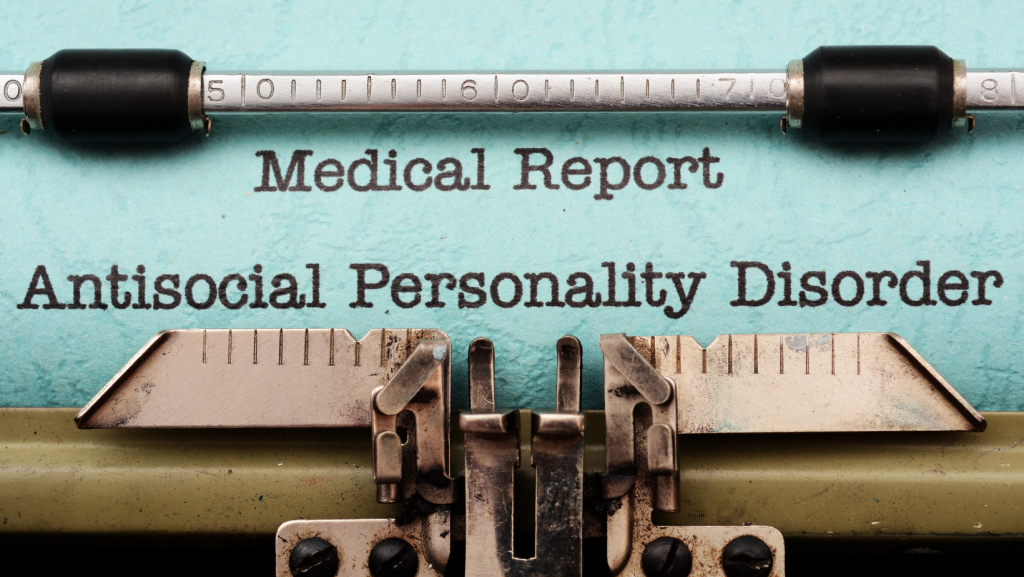
CLUSTER ‘B’ PERSONALITY DISORDERS
In this article we will discuss the different personality disorders which have been categorised as Cluster ‘B’ personality disorders. The personality disorders within this category show dramatic and erratic patterns of functioning.
Antisocial Personality Disorder (ASPD)
Characteristic symptoms: Someone with ASPD tends to violate the rights of others by involving in actions that are not in line with the social and legal norms, being deceitful, behaving in an impulse while failing to plan ahead, being aggressive, not considering the safety of self and others, no remorse of their actions of mistreating/hurting/stealing from others and consistently being irresponsible. The commonly used terms such as psychopath and sociopath are predominantly used to indicate an individual with the symptoms of ASPD. People with ASPD must be at least 18 years old to be diagnosed with the disorder; however, they must also show a history of conduct disorder or similar symptoms before the age of 15 years.
Risk factors: Antisocial personality disorder seems to manifest in someone that has a first-degree relative with the same disorder or symptoms, indicating a strong genetic link, and is predominant in males than that of females.
Borderline Personality Disorder
Characteristic symptoms: As a result of unstable self-image, interpersonal relationships and affects, the individual with Borderline personality disorder tends to make extreme efforts to avoid being abandoned. They tend to be impulsive in a range of contexts and situations. The need to have people with them and their sensitivity towards being alone contributes to their major abandonment fears. They may have dramatic shifts in their views of others as well as self due to their illusional interpretation of a caregiver’s nurturing characteristics which were idealised by them and, due to their shifts in goals, values and aspirations. Their impulsive approach may result in self-damaging actions such as gambling, binge eating, abusing substance, engaging in unsafe sex and driving recklessly. They may also have dramatic changes in their mood while they may also experience intense and uncontrollable anger frequently.
What causes Borderline personality disorder?
As in the case of most personality disorders, Borderline personality disorder is said to be more prevalent in those who have first-degree relatives with the same condition. Brain abnormalities such as changes that have occurred in the parts of the brain that are responsible for regulation of emotions, aggression and impulsivity, and the malfunctioning of certain brain chemicals involved in mood regulation are also identified to be contributing to the disorder.
Histrionic Personality Disorder
Characteristic symptoms: Being overly emotional and excessively seeking attention from others are the major symptoms experienced by someone with Histrionic personality disorder. They indulge in behaviors with the intention of being the centre of attention and feel unappreciated when that is not the case. Spending a huge amount of time and energy in dressing and grooming, expressing a sexually provocative or seductive appearance, exaggerating and dramatizing their expression of emotion, trying to create an impression on others with their style of speech that may lack details are some behvaiors that they exhibit predominantly.
What causes Histrionic personality disorder?
Although the clear-cut causes of Histrionic personality disorder have not been found, there seems to be a genetic susceptibility in inheriting the disorder. From a behavioural perspective, it can also be a result of learned behaviour from the parent with the disorder. Environmental factors such as a childhood environment with lack of criticism or punishment, unfavourable reinforcement patterns and confusing parental actions and behaviours that make it difficult for the child to understand what types of behaviours will reward them with parents’ approval.
Narcissistic Personality Disorder
Characteristic symptoms: Having an extreme sense of self-importance while being exploitative interpersonally due to the belief that others are entitled to comply with them are some characteristics of Narcissistic personality disorder. The individual has beliefs and fantasies that they are superior and special which results in their arrogant and haughty attitudes and behaviours. While they lack empathy towards others, they require excessive admiration from others.
Risk factors: Although the causes of Narcissistic personality disorder are not clear, the possible factors that contribute are found to be genetics, neurobiological factors as well as childhood experience of parent’s exaggerated adoration or criticism towards the individual.
References
American Psychiatric Association. (2013). Diagnostic and statistical manual of mental disorders (5th ed.). American Psychiatric Pub.
Borderline personality disorder. (n.d.). Mayo Clinic – Mayo Clinic. https://www.mayoclinic.org/diseases-conditions/borderline-personality-disorder/symptoms-causes/syc-20370237
Histrionic personality disorder. (2006, February 2). WebMD. https://www.webmd.com/mental-health/histrionic-personality-disorder
Narcissistic personality disorder – Symptoms and causes. (2017, November 18). Mayo Clinic. https://www.mayoclinic.org/diseases-conditions/narcissistic-personality-disorder/symptoms-causes/syc-20366662


